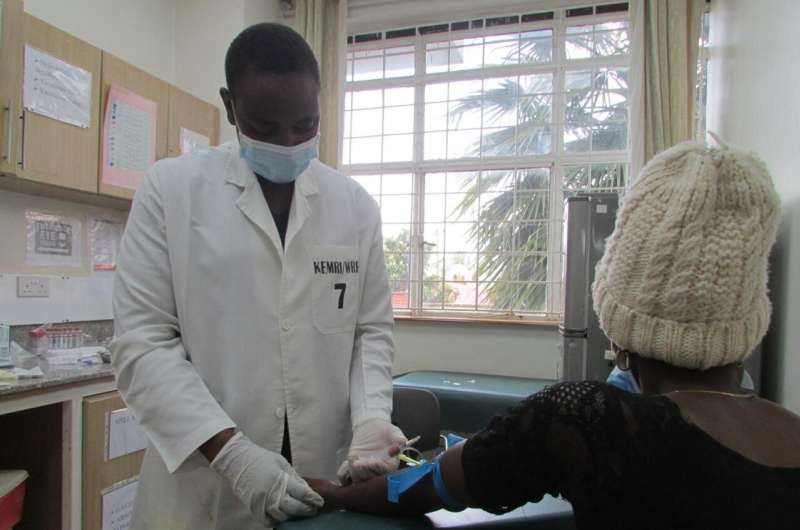
A new Phase 1 vaccine study began today that will evaluate experimental prime/boost HIV-1 vaccine regimens formulated with combinations of different adjuvants, including one from the Army Liposome Formulation (ALF) family of adjuvants developed by scientists with the U.S. Military HIV Research Program (MHRP) at the Walter Reed Army Institute of Research.
An adjuvant is a component of a vaccine that can help make it more effective by improving the immune response or causing the immune response to last longer. The goal of the new trial, RV460, is to evaluate whether an adjuvant can improve immune response to the antigens in the candidate vaccines. It will also help characterize the differences between the adjuvants and the role of adjuvants in priming versus boosting.
“By testing a DNA vaccine in combination with protein boosts and adjuvants, we hope to inform a more promising vaccine strategy that will elicit stronger, more durable immune responses,” said MHRP Director Col. Julie Ake.
The study is led by MHRP scientists in partnership with the Kenya Medical Research Institute/Walter Reed Project Clinical Research Center in Kericho, where the study will take place. The regimens being compared comprise an HIV-1 env-C plasmid DNA vaccine followed by a gp145 protein vaccine boost, and three different adjuvant products will be compared.
One of the adjuvants is ALFA, which was developed by U.S. Army scientists in MHRP’s Laboratory of Adjuvant and Antigen Research. In a 2020 preclinical study conducted by MHRP, an HIV vaccine formulated with AFLA elicited stronger immune responses than a vaccine formulated with a more commonly used alum adjuvant.
“Adjuvants work by recruiting immune cells into the site of immunization, which take up the HIV antigen and carry it to lymph nodes to make strong immune responses,” explained Dr. Gary Matyas, chief of MHRP’s Adjuvants and Formulations lab section. “We hope that the types of adjuvants used in RV460 will increase the immunity generated by DNA vaccines.”
A total of 126 healthy adult participants will enroll in the study. Participants will be randomly assigned into one of seven groups, and each individual will receive prime injections at week 0, 4, and 12, and boost injections at week 20, 32 and 56.
Source: Read Full Article
